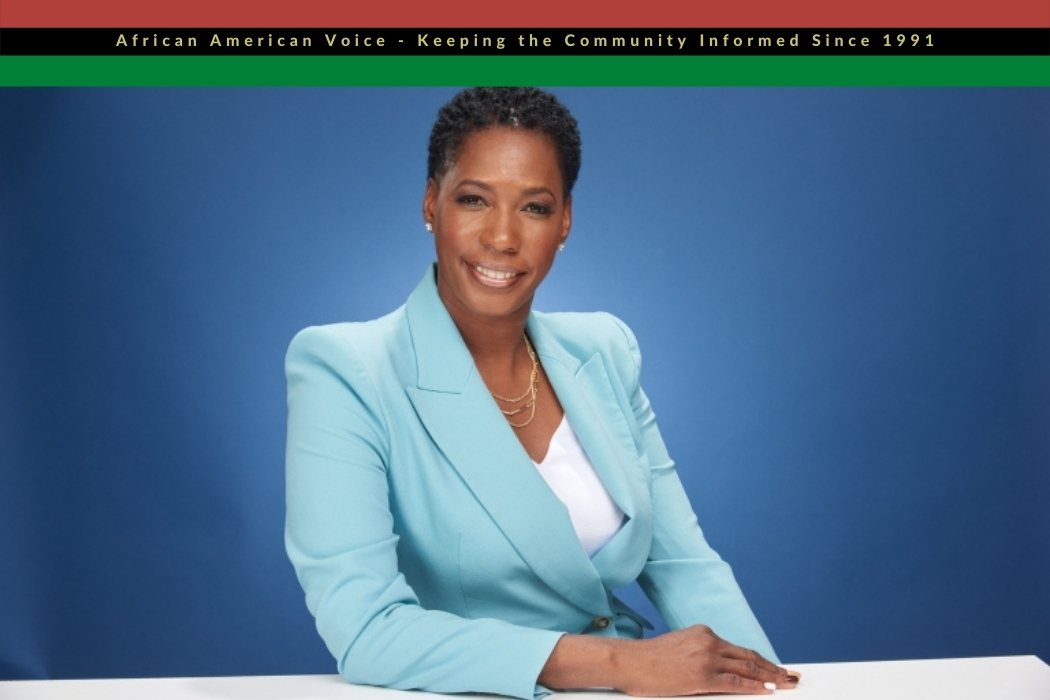As LADWP Senior Asst. General Manager of Diversity, Inclusion, and Equity, Monique Earl targets dismantling biased practices and increasing partnerships with marginalized groups
Monique Earl revealed an ambitious goal – save lives in the city by changing the L.A. city government.
Some may consider her aspiration far-fetched, but Earl is serious about this objective and she has the skills, experience, and capability to achieve it. Also, her current job positions her to reach that mark.
As senior assistant general manager and chief diversity, equity, and inclusion officer for the Los Angeles Department of Water and Power, Earl can begin to realize her vision of “unraveling institutional racism and discrimination where it lives and breathes in our government institutions.”
Earl connects the dismantling of biased practices with fulfilling the city’s main mission. As she explained, “The City’s primary focus should be saving lives. Saving lives means making sure all people have adequate housing, transportation, jobs, health care, education, etc.
“I know that a government that is working effectively on behalf of the people that need it most can transform lives. That is all that matters to me.”
With this philosophy in mind, Earl has committed to giving her best effort in carrying out her responsibilities, which include developing internal policies that influence recruitment, hiring, and training as well as producing external guidelines that impact economic development, supplier diversity, and aspects of community engagement.
“The vision of my office is to ensure diversity, equity and inclusion becomes part of the culture and central to policy-making decisions at LADWP,” said Earl, who added that various audiences, both within and outside the agency, are affected by the actions of her office.
For those who are already employed by LADWP, Earl wants to make certain that workforce initiatives contain provisions for career ladders and upward mobility. This is a critical issue considering that of 11,000 staff, 70% are people of color, but they are concentrated in the entry and lower levels of the agency.
“In comparison to overall employment distribution, African-American and Latino employees’ highest percentages are in the lower ranks of job classifications. LADWP wants to ensure that our workforce, across job classifications, is representative of the communities we serve. This also supports our commitment to using dignity-infused community engagement as a guiding principle in interactions with our community partners,” said the L.A. native.
“I am also working to help LADWP increase equity in our supply chain by removing barriers for M/WBE (minority or women-owned business enterprise), DBE (disadvantaged business enterprise), and small business contracting,” she said.
Her decisions will also touch people desiring to work for LADWP in the future. With thousands of employees eligible to retire soon combined with the department’s infrastructure mandates and investments, the executive noted, “LADWP expects to fill more than 3,000 positions over the next five years. My office has an opportunity to reimagine how hiring can be implemented and streamlined to maximize opportunities across a wide spectrum.”
Earl’s strategy ranges from designing systems to identify and train potential employees to create procedures for apprenticeship programs to establishing partnerships with community-based organizations. The alliances encompass groups such as educational institutions, trade unions, military and veterans’ organizations, and minority-focused associations.
In addition, LADWP recently joined with Advancing Minorities Interest in Engineering (A.M.I.E.) in a drive to increase the number of African American engineers in the department.
LADWP contracted with A.M.I.E., which represents Schools of Engineering at 15 Historically Black Colleges and Universities, to directly fund research at various HBCUs that can support the agency’s operations, programs, and initiatives.
“Our MOA (memorandum of agreement) with A.M.I.E would emulate the same MOA contract LADWP currently has with UCLA, while also providing equity for our engagement with HBCUs as compared with the level of engagement we have with other academic institutions,” the senior A/GM said.
Engaging and aiding others comes easy to Earl, especially in light of her background. The daughter of city employees, she grew up witnessing public service in action. Her father, who was hired as an LADWP custodian and promoted to the storekeeper, retired after 25 years and operated a successful business in the San Fernando Valley. Her mother was a valued deputy in the first administration of Councilmember Mark Ridley-Thomas and later with the office of Councilmember Bernard Parks.
After earning a Bachelor’s degree in political science at CSU-Northridge and a Master’s degree in public administration at American University in Washington, D.C., Earl joined the city in 2003 as a deputy to Councilmember Cindy Miscikowski. She applied the experience she gained to her next position as budget deputy for Parks, then-chair of the City Council Budget and Finance Committee. Her tenure, recalled Earl, included withstanding one of the most demanding periods in her career.
“The biggest challenge, but also the most memorable experience, I faced was during the 2008 financial crisis. The councilman, using his astute knowledge of the city’s budget, made some tough but necessary decisions to continue delivering services while at the same time avoiding bankruptcy,” remembered the Leimert Park resident.
“It was my job to work with the city’s budget staff, union leadership, and other elected [officials’] staff members, including the mayor’s office, to turn these decisions into budget policy while avoiding some pretty hefty political landmines. After many late-night collaborations, long weekends, and marathon budget meetings, we successfully avoided bankruptcy and saved thousands of city jobs.”
Earl went on to hold executive positions in the Office of the Mayor and Office of the Controller before serving as executive officer and assistant general manager at the Los Angeles Department of Transportation. As second-in-command at LADOT, she directed financial strategy, managed infrastructure maintenance, and project implementation, and oversaw the agency’s diversity, equity, and inclusion efforts.
Rising to peak jobs wasn’t easy, but Earl conceded that it would have been a lot harder without treasured mentors, who helped her maneuver the intricacies of city government. “I’ve been blessed to have a number of advocates that have taken a personal interest in my career,” she admitted.
“Out of those, if I had to put together my personal board of directors I would include, Councilwoman Cindy Miscikowski, Councilman Bernard Parks, executive director at the LA 84 Foundation and business leader Renata Simril, former Public Works Commission President Valerie Lynne Shaw, LADOT General Manager Seleta Reynolds, and L.A. City Administrative Officer Matt Szabo,” said Earl.
Yet, being LADWP’s highest-level African American executive will not dissuade Earl from remembering her journey to the top. In fact, she said the mantra that guides her career – “Leave the window open and the ladder down” – is a phrase she borrowed from her “dear friends and mentors,” Bernard and Shirley Kinsey.
“This means that I have a responsibility to ensure that other minorities are provided the same access and opportunities that I have been given,” said Earl. “I am intentional in ensuring that I meet with, mentor, and advocate for women and minorities at every turn.”
Image and News Source: Los Angeles Sentinel


